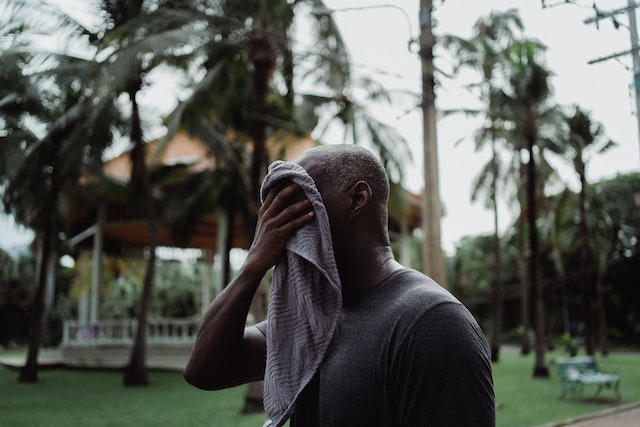
What causes a heat wave? It is caused when high-pressure air traps a layer of heat near the surface of the Earth and raises the temperature.
A heat wave is called when the average temperature for that time of year is higher than the historical average for more than two days in a row. Recently, thanks to human-caused climate change, heat waves are becoming more common and that is a trend that will only continue as the world continues to warm. We are doing very little to halt the progress, despite the obvious signs. The oil companies have done a tremendous job of instilling doubt in a large percentage of the American populace. And politicians find it very difficult to make policy changes for a future they won’t be a part of. Planning for a hundred years down the road will help the world but it won’t help them get reelected. The old adage of planting an oak tree that you will never sit under springs to mind.
Air pressure generally decreases with altitude. Warm air has more energy than cold air so it spreads out and is less dense. Because it is less dense, it rises above the colder air. As the warm air gets higher, it loses energy, becomes colder and more dense, and starts to sink again. Because it has more energy and is less dense, warm air has less pressure than cold air, which is more dense. This is the general cycle of air. With a heat wave, that cycle is changed. With a heat wave, a layer of high pressure air gets stuck at a high altitude.
There are bands of strong winds called jet streams that blow around the Earth. They are caused when large bodies of cold air meet large bodies of warm air. There are four jet streams on Earth. One at the North Pole. One north of the equator. One south of the equator. And one at the South Pole. The winds blow at about 200 km/h, but they can blow more strongly. They blow from west to east and they are at about 10,000 m high. Commercial airplanes try to fly in the jet streams if they are going west to east because it makes them faster and reduces their fuel load. The jet streams can be fairly straight, but if there is an imbalance of hot and cold air, they can snake hundreds of kilometers north or south of their usual route.
The jet streams have a big influence on the world’s weather because they circulate hot and cold air. The jet stream flows like a river and sometimes things can get caught in a current. Occasionally, high or low pressure air might get caught in a bulge in the jet stream and it will get stuck there, in the same way a stick might get stuck when the river current circulates. When this happens, it means a certain type of weather will stay in one place for a while.
This is what happens with a heat wave. High pressure air becomes stuck in a bulge of the jet stream. This high pressure air traps all of the other air underneath it. Hot air generally rises, but air always flows from high pressure areas to low pressure areas. Low pressure hot air cannot flow into high pressure cold air, which means the hot air is trapped. It wouldn’t be so bad if the hot air was merely trapped, but the high pressure air pressing down on the low pressure air compresses it, heating it up. If you compress a gas, the work done to compress the gas is imparted to the molecules as energy and when molecules have more energy, they have more heat.
The hot air that is trapped starts to warm up more and this starts a cycle that worsens the situation. The air is hot and it heats the ground. The reflected heat and the heat in the air mean that clouds can’t form. When there are no clouds, more of the sun’s light can hit the ground, warming the ground and the air up even more. There is also very little wind because wind is formed when air moves from a high pressure area to a low pressure area. The air in a heat wave cannot move, so there is no relief from the heat and no influx of new air that could cool the air that is already there. Once the heat wave has begun, it will only worsen until the layer of high pressure air that is locking it in is able to move away. This could take days. It could take weeks.
The heat waves we are experiencing at the moment will probably become the norm in the next decade as the world warms up. Heat waves have a huge impact on the economy and on us physically and psychologically. Crime rates, particularly violent crime, jump during a heat wave. Heat waves also make forest fires far more likely and even worse when they do happen. Can we survive? And this is what I learned today.
Photo by Ketut Subiyanto: https://www.pexels.com/photo/man-wiping-his-face-with-a-towel-4719917/
Sources
https://www.nytimes.com/article/heat-wave-cause.html
https://en.wikipedia.org/wiki/Heat_wave
https://climatecheck.com/risks/heat/what-is-a-heat-dome
https://scijinks.gov/jet-stream/

